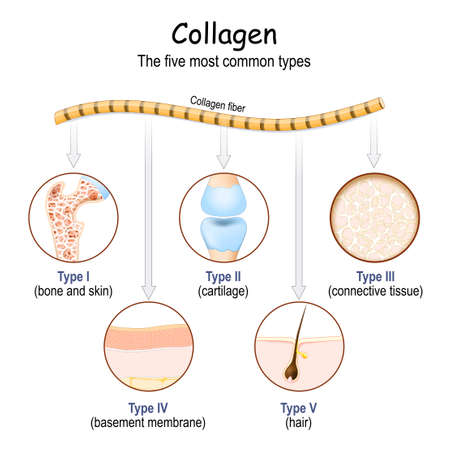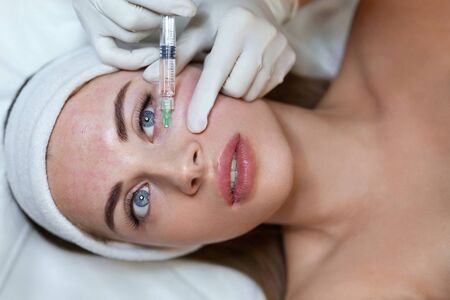Introduction to Collagen Stimulation Procedures
Collagen stimulation procedures have swiftly become one of the most sought-after beauty treatments across the UK, appealing to those who desire a naturally refreshed look without going under the knife. These treatments are designed to encourage your skin’s own collagen production, restoring youthful volume and improving skin texture in a way that feels both subtle and authentic. From my own experiences and what I’ve observed in London’s bustling clinics, it’s easy to see why these procedures have captivated so many: they promise radiant results with minimal downtime and a gentle approach compared to more invasive options.
The popularity of collagen stimulation stems from our collective yearning for longevity—both in our appearance and the effectiveness of our skincare efforts. Treatments such as Sculptra, Ellansé, and Profhilo are now household names among British beauty enthusiasts. They generally involve a series of carefully administered injections that work beneath the surface, prompting your body to rejuvenate itself over weeks and months rather than offering instant but short-lived fixes. As trends continue to shift away from dramatic transformations toward subtle enhancement, these procedures fit perfectly with the understated elegance favoured by many in the UK.
Current UK Safety Guidelines
When considering collagen stimulation procedures in the UK, safety remains a central concern for both patients and practitioners. The landscape is shaped by guidance from several authoritative bodies, including the NHS, the British Association of Dermatologists (BAD), and specific government regulations. Here’s an overview of what these organisations recommend to ensure safe and effective treatment outcomes.
NHS Guidance
The NHS emphasises the importance of choosing registered and experienced practitioners for any aesthetic procedure. According to official NHS advice, collagen stimulators such as Sculptra or Ellansé should only be administered by trained healthcare professionals in regulated clinical environments. The NHS highlights the risk of complications like infection, nodules, or allergic reactions if these treatments are not carried out properly.
British Association of Dermatologists Recommendations
The BAD has published comprehensive guidelines for non-surgical cosmetic interventions. Their recommendations focus on:
- Ensuring patient suitability through medical history screening
- Obtaining informed consent with clear explanation of risks and benefits
- Using products that are CE-marked and approved for use in the UK
- Providing aftercare instructions and follow-up support
The BAD also advises against receiving collagen stimulators from unregulated beauty salons or mobile practitioners, underscoring that complications should be managed by medically qualified staff.
UK Government Regulations
The regulation of non-surgical cosmetic procedures in the UK is evolving. At present, there is no legal requirement for practitioners to have specific qualifications, but recent developments aim to introduce mandatory licensing for anyone offering aesthetic treatments. The government has signalled its intention to tighten rules around advertising, practitioner registration, and product safety.
Key Aspects of Current Guidelines
| Authority | Main Focus | Key Recommendations |
|---|---|---|
| NHS | Patient safety & practitioner standards | Use trained professionals; regulated clinics; awareness of side effects |
| BAD | Clinical best practice | Medical screening; informed consent; CE-marked products; avoid unregulated providers |
| Government | Legal framework & consumer protection | Pending licensing requirements; stricter advertising controls; product approval processes |
A Personal Perspective on Navigating Guidelines
I’ve found that following these official guidelines not only boosts my confidence as a patient but also fosters trust in my practitioner. It’s reassuring to know that there are robust frameworks in place—especially when choosing a clinic or discussing treatment options. By seeking out providers who align with NHS and BAD recommendations, I feel more secure in both the aesthetic outcome and my overall wellbeing.

3. Common Risks and Side Effects
When considering collagen stimulation procedures in the UK, it’s natural to feel a little apprehensive about potential side effects. The majority of patients I’ve spoken to, and my own experience as well, suggest that most risks are mild and temporary. The most frequently reported issues include redness at the injection site, slight swelling, tenderness, and occasionally bruising – all reactions that usually subside within a few hours to a couple of days. Some people have mentioned a mild itchiness or feeling of tightness in the treated area, but this tends to resolve quickly.
It’s worth noting that British clinics are held to strict safety standards under the guidelines from regulatory bodies such as the Care Quality Commission (CQC) and the General Medical Council (GMC). These standards ensure practitioners follow best practices for infection control and patient care. Rare complications like allergic reactions, formation of small lumps under the skin, or prolonged inflammation are infrequently seen, especially when procedures are performed by qualified professionals.
For most UK patients, their journey involves a thorough consultation where risks and benefits are clearly outlined. Clinics typically provide detailed aftercare advice to help minimise discomfort and encourage smooth healing. In my chats with others who have undergone these treatments, there’s a recurring theme: minor side effects are common but manageable, while serious complications remain rare thanks to diligent adherence to UK medical guidelines.
4. Choosing a Qualified Practitioner
When considering collagen stimulation procedures in the UK, the safety and effectiveness of your treatment rely heavily on the expertise of your practitioner. Navigating the world of aesthetic treatments can be overwhelming, so its essential to know what qualifications and accreditations you should expect from anyone offering these services. The UK has its own set of standards and professional bodies that help safeguard patient wellbeing.
Essential Qualifications & Registrations
Always check that your practitioner holds recognised medical or aesthetic qualifications. Ideally, they should be registered with a UK regulatory body. Here’s a quick reference table for what to look out for:
| Profession | Required Registration/Qualification | Regulatory Body |
|---|---|---|
| Doctor (GP, Dermatologist) | GMC Registration | General Medical Council (GMC) |
| Nurse (including Nurse Prescribers) | NMC Registration | Nursing and Midwifery Council (NMC) |
| Dentist | GDC Registration | General Dental Council (GDC) |
| Aesthetic Practitioner (Non-Medical) | Accredited Aesthetic Training & Insurance | Voluntary Registers e.g., JCCP or Save Face |
Tips for Finding a Reputable Practitioner in the UK
- Check Accreditation: Look for practitioners listed on reputable registers such as Save Face, The Joint Council for Cosmetic Practitioners (JCCP), or those regulated by CQC (Care Quality Commission) if the clinic offers medical procedures.
- Experience Matters: Choose someone with proven experience in collagen stimulation specifically—don’t hesitate to ask how many procedures they have performed and request before-and-after photos.
- Consultation First: A credible practitioner will always offer a thorough consultation, explain risks and benefits honestly, and never pressure you into booking immediately.
- Transparent Pricing: Reliable clinics provide clear pricing and aftercare information up front, with no hidden costs.
- Insurance: Make sure your practitioner has valid indemnity insurance covering the specific treatments offered.
- Cultural Awareness: UK practitioners should understand the nuances of British skin types, sun exposure habits, and local preferences for natural-looking results.
Your Safety is Paramount
The right practitioner not only enhances your results but also prioritises your safety at every step. Take time to research and choose wisely—after all, this is about both your confidence and your health.
5. Best Practices for Safe Treatment
When considering collagen stimulation procedures in the UK, following local best practices is essential to ensure both safety and optimal results. Before treatment, it is highly recommended to schedule a thorough consultation with a GMC-registered practitioner or an experienced aesthetic nurse. During this initial meeting, take the opportunity to discuss your medical history, current medications, and any allergies—this transparency is crucial for minimising risks. You should also ask about the specific products or devices being used; reputable clinics will be forthcoming about CE-marked materials that comply with UK safety regulations.
Before the Procedure
Preparation is key. Avoid blood-thinning medications such as aspirin or ibuprofen unless prescribed otherwise by your GP, as these can increase bruising. Arrive at your appointment with clean skin free of makeup or topical products. If you have active infections or are prone to cold sores, notify your practitioner as this may affect your suitability for treatment or require pre-emptive care.
During the Procedure
A trusted UK clinic will always prioritise hygiene and patient comfort. Make sure your practitioner uses sterile, single-use needles or cannulas and that all equipment is freshly opened in front of you. Don’t hesitate to ask about the brand of collagen stimulator being injected—it should be one approved for use in the UK. Throughout the procedure, good communication is vital; let your clinician know immediately if you feel unexpected discomfort.
Aftercare Essentials
Effective aftercare can make a world of difference. Most UK practitioners provide detailed written instructions tailored to the product used and your skin type. Typical recommendations include avoiding strenuous exercise, saunas, and alcohol for at least 24 hours post-treatment. Applying a cold compress can help reduce swelling, while gentle cleansing routines protect your skin’s integrity. Always monitor your results and report any unusual symptoms—like prolonged redness or pain—to your clinic promptly.
Follow-Up and Long-Term Care
Finally, follow-up appointments are standard practice in reputable UK clinics. These check-ins allow practitioners to assess your healing progress and tweak your treatment plan if necessary. They also offer a chance to discuss maintenance treatments so you can enjoy lasting, natural-looking results with minimal risk.
6. Personal Experiences and Local Insights
When it comes to collagen stimulation procedures, nothing speaks louder than the authentic voices of British patients who have experienced these treatments firsthand. Many clients in the UK approach their initial consultations with a healthy dose of scepticism—perhaps a very British trait! In my own journey, I found that clinics across London and Manchester place significant emphasis on informed consent and transparent communication, echoing the wider UK regulatory culture that prioritises patient safety above all else.
Conversations with fellow patients reveal a shared appreciation for practitioners who respect personal boundaries and take time to explain each step of the process. It’s not uncommon for British clients to expect a thorough patch test or detailed medical history review before any procedure begins. This cautious attitude, shaped by both NHS standards and private clinic protocols, ensures that everyone feels comfortable and secure before moving forward.
Etiquette in UK aesthetic clinics is subtle yet distinct. There’s a mutual understanding between practitioner and client: punctuality is valued, privacy is paramount, and discretion is always maintained. I remember being pleasantly surprised at how much time was dedicated to aftercare instructions—often provided in both printed leaflets and follow-up emails. Typical advice includes avoiding sun exposure, steering clear of rigorous exercise for a few days, and using gentle skincare products recommended by the clinic.
One cultural nuance worth noting is the understated way British clients discuss aesthetic enhancements; there’s often an air of modesty, even when results are transformative. Post-procedure support groups or online forums are popular spaces where individuals share honest reviews about swelling, bruising, or satisfaction with their results—always with a distinctly dry sense of humour!
Ultimately, personal experiences throughout the UK highlight not just the safety measures in place but also a uniquely British approach to beauty: one that values authenticity, subtlety, and well-informed decision-making above fleeting trends.
7. Conclusion and Final Thoughts
After exploring the ins and outs of collagen stimulation procedures within the UK, it’s clear that safety is at the heart of both national guidelines and best practices. These treatments, when carried out by qualified professionals adhering to British regulations, offer a blend of innovation and reassurance for those seeking subtle yet effective rejuvenation. While no cosmetic intervention is entirely without risk, the robust standards set by the CQC and GMC, paired with a culture of patient transparency, help create an environment where you can feel confident in your choices.
It’s important to remember that your own research and personal comfort play vital roles in this journey. Don’t hesitate to ask questions about practitioner qualifications, product sourcing, and aftercare protocols—any reputable clinic will welcome your curiosity. The British approach to beauty values authenticity and informed decision-making, so trust your instincts as much as the science.
For anyone considering collagen stimulation, start by consulting with a regulated UK practitioner who prioritises both artistry and safety. Take time to review past client results, read independent reviews, and ensure you receive a thorough consultation tailored to your unique needs. With these steps, you’ll not only embrace the elegance of British beauty culture but also embark on your aesthetic journey with peace of mind.


